A conversation with American Gaming Association President Bill Miller. By David McKee
What do you do when you can’t get what you want from Washington, D.C.? If you’re American Gaming Association President Bill Miller, you take your case to the states. That’s what happened when Miller found the Biden administration unable or unwilling to make a causus belli of illegal, offshore gambling sites. There were sympathetic ears among state-level attorneys general and Miller got what he wanted, although he’d be the first to say that there’s much more to be done.
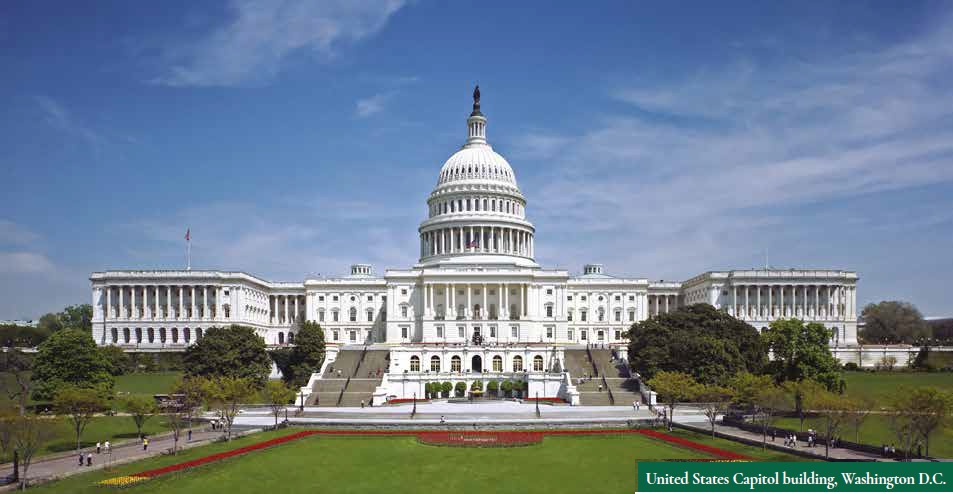
Miller’s seven-year (and counting) tenure at the AGA as CEO and prexy has been one of opportunity mixed with crisis. He came in with the chance to celebrate the downfall of the Bradley Act, opening up sports betting (and how!) for the U.S. gaming industry. Then he and the industry got socked, in 2020-1 with Covid-19, rendering Big Gaming – and tribal gaming, too – hors de combat for months on end. What followed was a recovery that happened much faster, sooner and bigger than almost anyone expected … and which Wall Street seems not quite able to believe, even now.
That was one of the issues Miller addressed in a wide-ranging exchange with Casino Life. He spoke of both the outgoing Biden administration and the incoming Trump one, as well as recent political theatrics on Capitol Hill. He spoke frankly of problem-gambling issues, and also of problematic media coverage. And he had a few forecasts for the new year. Our conversation has been lightly edited for clarity and length.
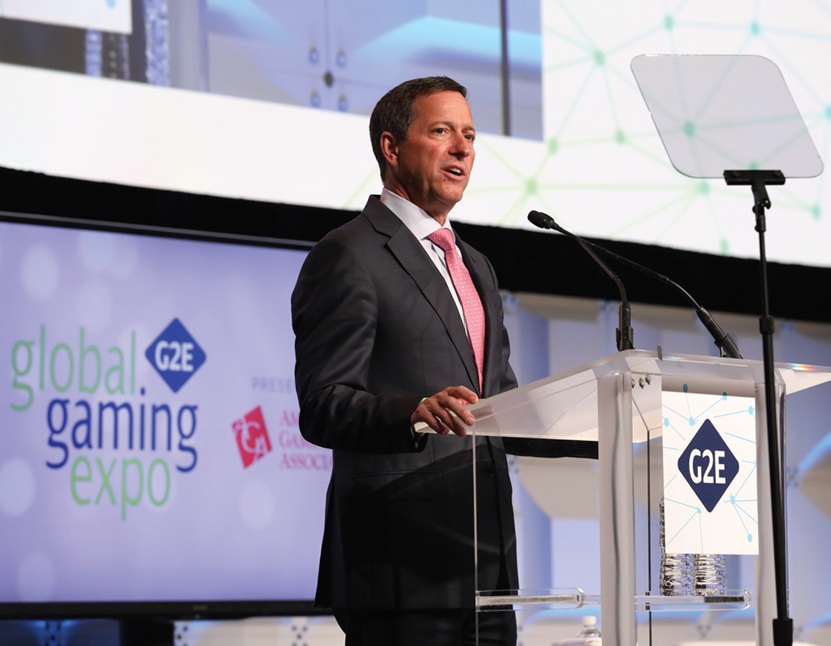
Image: Bill Miller, President American Gaming Association
Looking back on 2024, what were the AGA’s greatest successes?
There were many. One of the things that’s exciting about being in this industry and having the privilege of running the AGA is you really get to see the challenges when we’re moving things forward. Just from a pure economic perspective, through October – and we don’t have all the late numbers yet – revenues were up
seven percent across the board from 2023. We are at 45 months in a row of sustained growth. What other industry in America can say that? I’d be hard-pressed to find one. As we better understand how much of that gambling is actually legal and what’s illegal. One of the challenges has been the poorly reported-on realities of building a legal sports betting industry from scratch in seven years.
It comes with the territory. We’re not crying it our soup. It’s just a function of the realities and the laborious nature of educating non-gaming reporters in the structure of how the gaming industry works on a state-by-state basis, rather than at the federal level – like if we were selling Procter & Gamble products. That requires a level of education that sometimes we’re not able to catch in every one of these stories. look back at where we’ve come from the depths of Covid, there were those who thought, “Sure, the gaming industry’s going to do quite well because of pent-up demand, government stimulus, etc., but it’s a sugar high.” What we’ve seen is that we’ve continued to be a mainstream entertainment option for Americans.
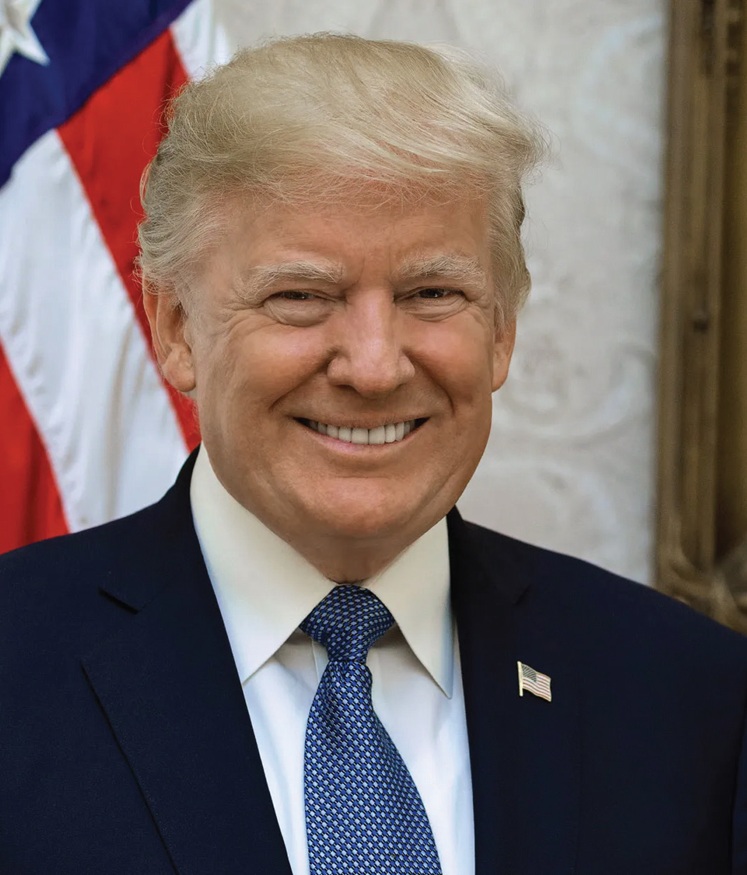
Image: Donald Trump the 47th President of the United States
Wall Street, although they’ve finally gotten off this hobby horse, kept predicting a recession in gaming that has yet to materialize.
That’s right. I’m not so Pollyanna-ish as not to think that our industry will have challenges. Macroeconomic issues and global issues can affect us. We saw that in a very pronounced way during Covid. But our industry has seen itself to be far more resilient than those people on Wall Street thought we were.
What were 2024’s biggest disappointments?
[Chuckles] Like any industry, you have really exciting things and you’ve still got challenges. I can’t point to a specific disappointment. The illegal gambling market’s not going away and not easily. When we’ve thought about “How are we going to approach 2024,” we say, “All right, in the sports betting space we’ve seen pretty significant growth, but in the states where there’s no legal sports betting there is a robust illegal market.” Bovada, MyBookie.com, etc. continue to flourish. We’ve said one of our key challenges – but also opportunities – is to make it hard for these guys to
operate.
That includes the sports betting online space but also, importantly, includes those gray-market skill game machines in places like Pennsylvania, Virginia, Missouri or Florida. Those machines don’t have the protections of the legal, regulated market. They prey on people with problem-gambling issues, people that are underage, with zero tax revenue, with zero oversight. They, by and large, have had a look-the other- way attitude by some people that were tasked with law enforcement. In the beginning of 2024, this was a major, major problem and we’ve made a lot of
headway with it.
Bovada pulling out of 13 states because of the actions of attorneys general who sent cease-and desist letters. That strengthens not only market operators but also protects the consumers. We’ve
made a lot of headway in that area, as well as in the skill-game machines. The state of Virginia recently authorized both brick-and-mortar casinos in the commonwealth as well as sports betting.
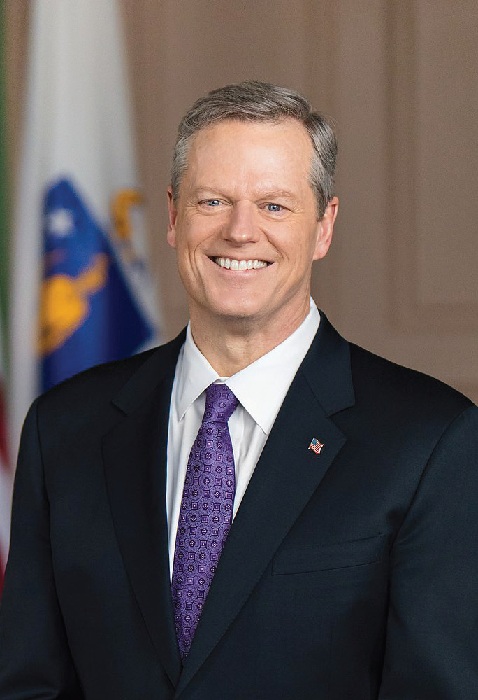
Image: Charlie Baker, President National Collegiate Athletic Association
Then we were faced with the possibility of the authorization of these lookalike skill-game machines, at a much lower tax rate. That would have significantly affected negatively those legal operators that have invested hundreds of millions of dollars. That was a massive challenge and we ended up winning, fighting these guys back. We got a veto from Gov. Glenn Youngkin.
As we turn the page to 2025, the people that want to run illegal gaming operations are going to do it because it’s a lot easier than paying the taxes that we pay and getting licensed. They are not going away. They were a challenge in 2024 and they will continue to be in 2025. We still have a long way to go.
Is that the level at which the Bovadas of the world are going to have to be solved? What conversations have you had at the federal level?
To be candid, we didn’t a get a great deal of receptivity at the highest level of the Department of Justice. But with the FBI we have many, many conversations. We shouldn’t be shown favoritism. But if there are illegal competitors that are hurting consumers and quite possibly financing other illegal activities – drug trafficking, etc. – then the federal government should play a role.
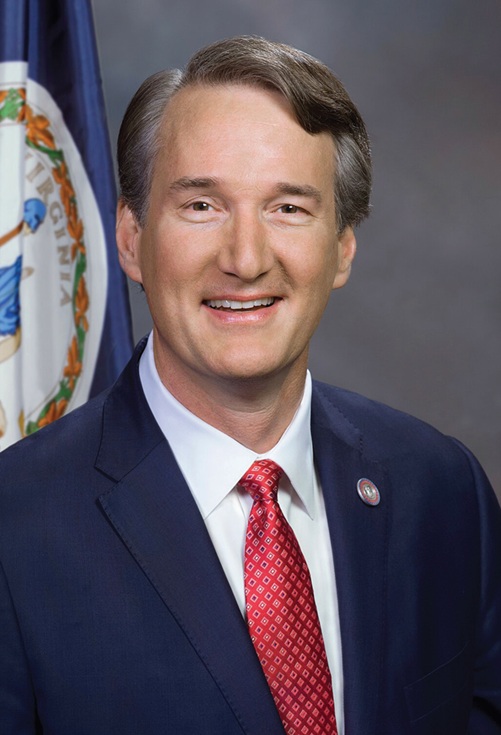
Image: Glenn Youngkin, Governor of Virginia
The support at the federal level was not as good as I thought it should be. It’s in part why we went to the states. The states may have limited effect but let’s see what we could get done. We put together regulator roundtables at Global Gaming Expo and these other gatherings, with state attorneys general, and have had conversations with legislators at National Council of Legislators from Gaming States. They understand and appreciate that the legal, regulated industry supports a lot of government funding, and it is in their interest to do what they can to reduce the effects of the illegal market.
The success came from the states, not from the federal government, but I haven’t given up on that and our team hasn’t given up on that. We’ve yet to see what an incoming attorney general, Pam Bondi, and an incoming, filled-in administration look like and prioritize. I’m an optimist by nature and I believe we can make a pretty compelling case that these offshore businesses that prey upon individuals are bad for the government and should be prioritized. The prioritization issue was the one where I was disappointed.
But I’m also a guy who worked nine years in the government, too. You try and get the government to take on a new issue, they say, “Man, I’ve got terrorism on my plate at the FBI and the DOJ. So while we’re sympathetic there may be other areas where we’re better-suited to help you than us.”
Did you watch the recent Senate Judiciary Committee hearing on sports betting? If so, what did you think of it?
I did. I was disappointed that we didn’t have representation from the actual industry. But I do think Dave Rebuck did a great job in pushing back on this notion that state legislators are ill-equipped to handle sports betting. Obviously, 5,000 regulators are getting up every day, making sure that they understand what the industry means to their state but also holds them to account. There are a lot of people like Dave Rebuck that take their job very seriously. They want to see a successful commercial gaming industry but they also want to see an industry that plays by the rules.
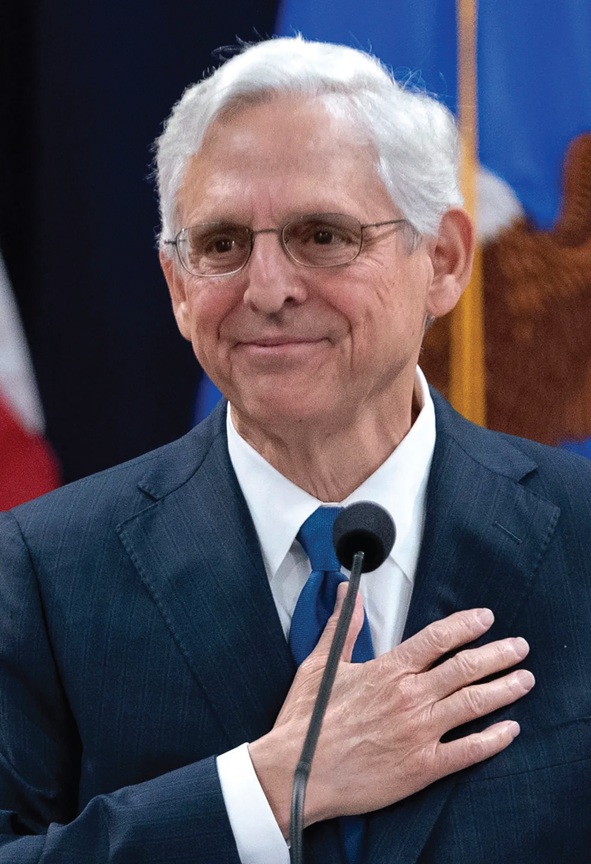
Image: Merrick Garland, United States Attorney General
Do you expect more such political theatre in the new Congress?
All Congresses have political theatre. I don’t believe that we will be a priority. The hearing obviously got sidetracked on a number of non-gaming, non-sports betting issues. [Laughs] Some of those issues will certainly be revisited. These really challenging issues that Gov. Charlie Baker has, running the NCAA, are only going to get harder: the potential unionization of athletes. What does NIL look like? How does the transfer portal work? What is a part-time job? Then to the degree there’s an interaction with sports betting, we might be dragged into there to some respect.
We are very intentional about this: We look an identify those members who, when they run for Congress, we always want to understand them. Oftentimes those are people who were in the state legislature before they went to the federal level or Congress. We are understanding what their perspective was when they were a state legislator and whether there was a casino nearby, whether they were supportive or opposed or somewhere in the middle, making sure that they understand the economic impact we create in these communities.
We now have over a thousand casinos across America and that’s a really important foundational piece of intelligence that we get. We go make sure those legislators understand the value that we’re creating in their states. That goes a long way to lessen the likelihood that you’re going to be the subject of some political theatre.
What do you make of a recent plethora of anti-gambling coverage in the legacy media?
The media, particularly the legacy media, has a poor understanding of our industry. They fall on some old, stereotypical dynamics that are factually questionable. There’s a lack of appreciation in many cases between what is happening in the illegal gambling market – Shohei Ohtani – and what’s happening in the legal gambling market – Jontay Porter. The legal market is working, in that it’s creating deterrents for people that are part of the sport from engaging in betting that might endanger or affect the integrity of the games, versus the illegal market, which was the Shohei Ohtani story. The media just throw them all in one big bucket and say, “Wow, gambling’s out of control.” Quite frankly, it’s lazy reporting.
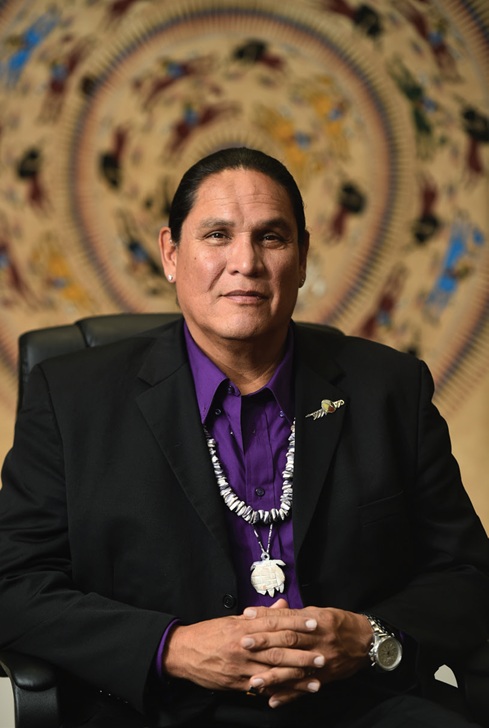
Image: Ernie Stevens, Jr., Chairman, Indian Gaming Association
We spend a lot of time pushing back when mainstream media is using Bovada odds for things that are not legal bets in the U.S. Then they’re saying, “There are these issues all over the country that are very problematic and they’re happening on college campuses.” We say, How old are people on college campuses? Most people are 18 through 23, when in almost all of the states the legal gambling age is 21. Then you have to say a responsible reporter should better understand how much of that gambling is actually legal and what’s illegal. One of the challenges has been the poorly reported-on realities of building a legal sports betting industry from scratch in seven years.
It comes with the territory. We’re not crying it our soup. It’s just a function of the realities and the laborious nature of educating non-gaming reporters in the structure of how the gaming industry works on a state-by-state basis, rather than at the federal level – like if we were selling Procter & Gamble products. That requires a level of education that sometimes we’re not able to catch in every one of these stories.
Between some recent scandals like the Ohtani investigation and sundry money-laundering probes, could we see a push for federal regulation of the industry?
The current structure works quite well. I’m not a constitutional scholar but I do believe that the Supreme Court recognized that the federalism dynamic of our country, and that the states have traditionally run and regulated the gambling industry. Federal incursion into that is not going to be welcomed by state governments or legislators or treasurers – of a Democrat or Republican stripe. We are further away from federal legislation now than we were last year, when we were very far away. In the House and two Senate, I think you’ve got only two co-sponsors of bills to do that type of thing.

What is the AGA’s official stance on tribal OSB, particularly with Deb Haaland leaving the Interior Department and Doug Burgum soon in?
The courts have made a decision about this and it will have ramifications for Florida, and may have for other states and tribal nations. We’re very proud to have 11 tribal nations as members of the AGA. I get their counsel all the time and we have an incredibly good working relationship with Chairman Ernie Stevens of the Indian Gaming Association. In talking with these guys, they don’t believe there will be a significant change in posture towards tribal nations with Doug Burgum being the Secretary of the Interior versus Deb Haaland.
You mentioned tribal membership in the AGA. Would you like to up that?
We are always in conversations with different tribes, always looking for people that are interested in the AGA specifically. Geographical diversity is always very important. Our conversation has always been, “What does it look like at the congressional level? At the state level?” Certainly, having a significant commercial footprint across the country with many different delegations is important. But it’s equally important to have tribal representation as many places as you can. Now, some states don’t have tribal nations that have been recognized and many do not have tribal nations that have been also recognized for casinos. It’s a little bit of a challenge but we’re always looking to build relationships with the tribal nations.
Regarding responsible gambling, the AGA seems to be in a no-win situation: It is accused of not doing anything or, if does make efforts, that it’s not doing enough. What’s your take?
[Sighs] It’s important to remind people that responsibility is in our DNA. We are one of the most highly regulated industries in the country. Part of that is that we act in accordance with the license that we hold. We can be held to account and our industry IS held to account when it acts inappropriately. Then the other side of it is that the industry is, by and large, the largest funder of responsible-gaming and problem-gambling resources in the country. Importantly there have never been more resources available for problem gambling than there are today.
We, as a legal, regulated industry, cannot be successful unless we act in a responsible manner. When I think about whether we are, I don’t think about some reporter who has an axe to grind with the industry. I think about mainstream America. Today, nine out of 10 Americans think that gambling is a mainstream entertainment option and that’s a pretty high water mark for the industry, one that I do not believe we would attain if the general public believed we were predatory.
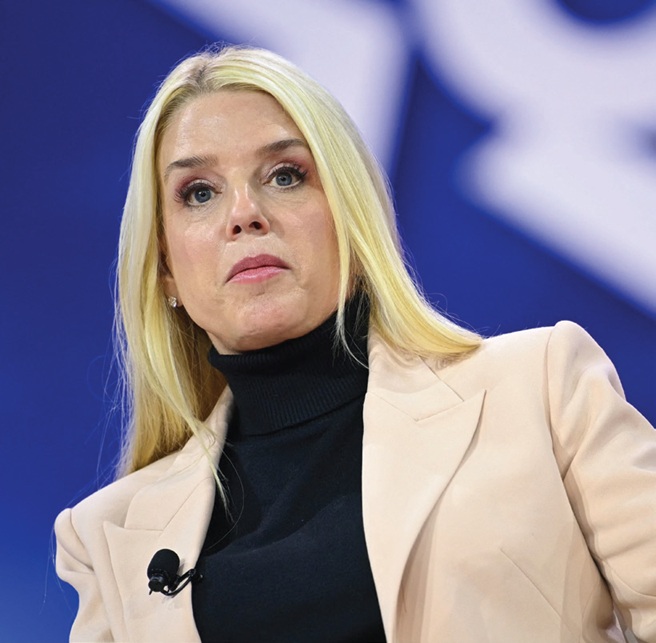
Image: Pam Bondi, Attorney General-designate
What would be the impact on consumer spending – and thus on gaming – of proposed new tariffs, middle-class tax hikes and reductions in Social Security?
The gaming industry is pretty resilient. This is a function of the decades of investment in the communities. People want to have fun. They want to take a break from their everyday life and go play slots or table games. Their economic standing is probably one of the most important elements of whether or not our industry will remain successful. So you could probably get 10 different economists to get 10 different opinions about what tariffs might mean to people’s discretionary income.
There’s a lot of talk about middle-class taxes being increased. As someone who worked on the 2017 tax bill, I don’t see that as a real likelihood. Reducing benefits in Social Security tends to be very political in terms of the rhetoric that’s used around it. Who knows what all the details are going to be around that? But it is pretty clear that the government doesn’t have the money to pay Social Security and Medicare for any significant length of time. If you were going to make the system more solvent, you have to create something to increase that solvency. I don’t know what every single one of those levers is going to be but I don’t believe it’s going to heavily impact the gaming industry in the short term.
As far as a possible tax reduction, the one on tipped income, what is the likelihood of its passage? That’s a made-in-Las Vegas issue.
Yup. The president-elect campaigned on it. The tips piece, it’s going to have to be scored but then I do believe the president-elect was pretty serious when he campaigned on it. This tax bill has a lot of really big, expiring provisions that will need to be renewed. That offers the opportunity to actually put something in there, like no taxes on tips.
What would the effect of mass deportations and workplace raids be on the industry’s workforce and morale?
Our industry and any industry in the travel-and-leisure sector depends on a significant workforce, and many of those workers come from different places. Our hope is to shape policy that creates as little disruption as possible for an industry that provides a lot of jobs in America, and particularly in states like Nevada. It’s not just politics. It’s trying to do this recognizing the rule of law, recognizing that people should come to America the correct way and that’s fine. Full stop.
The second part is how do you deal with this from an employment perspective, an economic perspective and a humane perspective? All those things will all take time. None of them will be easy and none of them will be quick.
Where are gaming’s best prospects for expansion this year?
New York City is probably closer than any. The potential of figuring out what those three downstate comes closer into the windshield because Gov. Kathy Hochul’s trying to put together a budget in Albany and saying, “This could really help.” How does California figure out the Gordian knot of sports betting with tribes? Difficult – but doable in a year where it goes before the voters, which is not going to be for another year or two. Then Texas. Again, the Legislature meets this year but if they don’t get it done it’s like Nevada: They’re out for next year. So then it’s really three years.
What is your biggest hope for the new year?
I wish that we have a healthy new year. My first year was all about the aftermath of the sports betting Supreme Court ruling. The next year was all about Covid and shutting down the country and certainly the industry. My hope is we have a successful, safe year, that our industry continues to grow, that it grows in a healthy way. I hope we continue to find more legislators that recognize and support what we do. I really think that, as an industry, in the communities in which we operate we breathe life into cities and towns that got left behind by other industries.
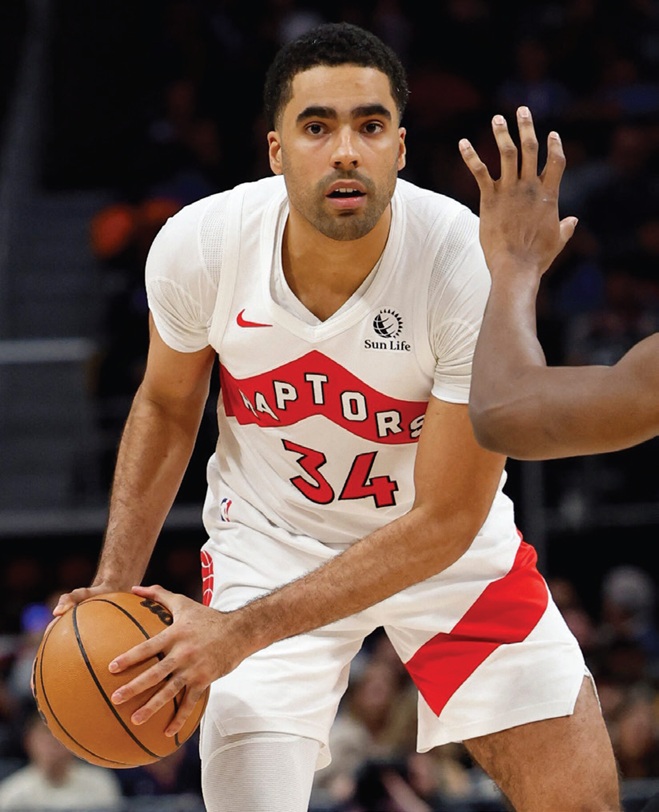
Image: Jontay Porter, American basketball player
Oftentimes that is not appreciated in a way that it its in those places that had a lot of underserved populations. It is now reflected in how the general public feels about our industry. But we still have these reporters and others that kind of agitate that this is an industry that is not working to the benefit of these communities.
If I had one wish it would be to have a better-informed media that actually understands what we actually bring into the communities in which we operate.
Casino Life Magazine Team would like to thank Bill Miller and is PR Team, for taking the time for this interview with us.
***This exclusive feature interview was originally published in Casino Life Magazines January 2025 edition of Casino Life Magazine Issue 173 ***






























